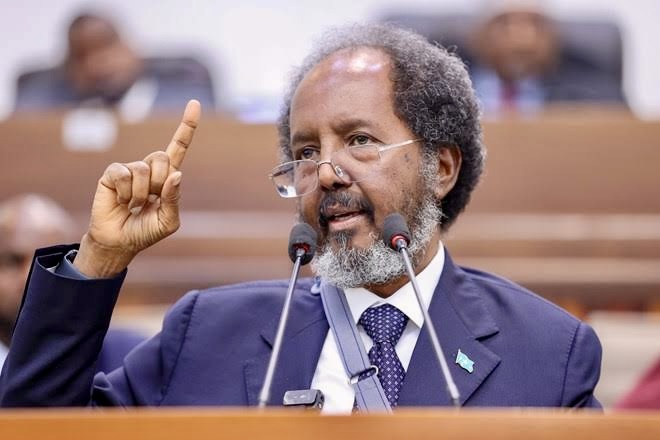
Faith Nyasuguta
South Korea has stepped onto the African stage in a big way, hosting its first-ever summit with African leaders on Tuesday in Seoul.
This ambitious undertaking aims to raise Korea’s profile on the continent and forge new economic ties. However, Africa is already a hotly contested arena for global influence, with established players like China, the US, and the EU vying for partnerships.
South Korean officials acknowledge this but emphasize a different approach. Chung Byung-won, Deputy Minister for Political Affairs, argues that Korea’s shared history of overcoming poverty makes it a uniquely qualified partner for African nations. “No other country holding a summit with Africa has a history like ours,” he stated. “Korea achieved remarkable growth not just by itself, but with international support.”
This summit, however, is driven by more than just shared experiences. South Korea has its eye on Africa’s vast mineral resources, crucial for the country’s transition to a greener future. Additionally, establishing strong trade ties with Africa is a priority. Minister Chung spoke broadly about strengthening economic cooperation for mutual development and growth.

He elaborated, highlighting South Korea’s expertise in development and advanced technologies, which could “catalyze Africa’s economic growth and sustainable development.” He specifically mentioned Ghana and Zambia, countries rich in minerals like copper, as potential partners for collaboration in electric vehicle production, a key area of focus for Korea.
This summit is seen as “the best opportunity for Korea to accompany Africa’s proactive development path” by leveraging its own experience, according to Chung. With an expected 48 African nations participating, the event boasts a strong turnout.
Leaders like President William Ruto of Kenya, Samia Suluhu Hassan of Tanzania, and Paul Kagame of Rwanda are among those confirmed to attend. Notably, Tanzania, Kenya, and Morocco are already in talks with South Korea about Economic Partnership Agreements, and Tanzania has secured a significant loan from a Korean development fund.
The summit format allows for both bilateral and plenary sessions, along with business meetings, providing African leaders with a platform to directly showcase their investment opportunities. However, South Korea has framed the entire event around three main pillars: engaging with the Global South, fostering mutually beneficial economic cooperation, and addressing shared global challenges like climate change, peace, and security.

Seoul’s approach is a blend of narratives. It acknowledges the historical struggle against colonialism and poverty while simultaneously promoting Western ideals like democracy and free markets. Promotional material distributed to media outlets hints at various development initiatives planned for Africa, including official aid programs, capacity-building initiatives, and knowledge sharing in education, healthcare, and agriculture.
South Korea clearly aims to maintain its “positive reputation” in Africa and dismantle negative stereotypes. Foreign Minister Cho Tae-yul emphasizes Africa’s importance in achieving South Korea’s ambition of becoming a “Global Pivotal State.” He views Africa as a vital market and source of critical minerals needed for advancements in technology.
Whether this summit translates into concrete benefits for both sides will depend on several factors. Professor David Monday of the City University of New York applauds Seoul’s interest in addressing trade barriers.
He cautions, “Time will tell. South Korea has some catching up to do with Asian rivals in Africa.” He highlights the need for tariff and non-tariff barrier reduction, alongside improved connectivity through direct flights between Seoul and African capitals.
Another key point raised by Professor Monday is the need for a “win-win” trade relationship, as the current situation favors South Korea. He also emphasizes the challenge of South Korea’s historically strict non-tariff barriers, which may require reform to accommodate African exports.
Some experts argue that the focus shouldn’t solely be on extracting raw materials from Africa. Former Kenyan Ambassador to South Korea, Ngovi Kitau, believes African leaders should push for value addition and collective trade agreements. He emphasizes the lack of a free trade agreement between Africa and South Korea, which disadvantages African agricultural products. Kitau further points out the population disparity between Korea and Kenya, limiting demand for African consumer goods.
Despite these challenges, South Korea highlights its progress. As an observer state within the African Union, trade with the continent has significantly increased, growing from $890 million in 1988 to $20.5 billion in 2022. While the trade balance does favor South Korea, investments in Africa have also grown, reaching $700 million in 2019.

South Korea points to its financial support through loans and grants, as well as its participation in infrastructure projects like the Lobito Corridor in Angola and investments in education initiatives. Additionally, they emphasize their growing tourism industry, welcoming thousands of African visitors and students.
The focus on K-Rice production in Kenya, Uganda, Senegal, and Cameroon further demonstrates South Korea’s commitment to technology transfer and agricultural development in Africa.
RELATED:




